
The little town of Banjo Bay sits proudly in the cove,
Welcoming her sons home from their toil,
Her harbour filled with laughter, her streets bedecked with love,
A place for growing up and growing old.
The morning sun shines brightly on the narrow, cobbled streets,
As Jane Golightly rubs the chalky board,
‘Good morning children’ she exclaims ‘Come quickly, take your seats’,
‘Good morning Miss’ they chime with one accord.
Four and twenty little faces beam in adoration,
As teacher’s pet would everyone be known,
For joyfully she bears the burden of their education,
And every one she loves as t’were her own
As prim and proper as they come, the wagging tongues will say,
But maybe not as proper as they think,
For when the bell is rung and school is over for the day,
Jane Golightly likes to take a drink.
A drop or two before her supper helps her to relax,
Another drop to help digest the bread,
As she prepares tomorrow’s test she pours another glass,
Then one or two before she goes to bed.
Medicinal, that’s what it is, or so she tells herself,
A glass of comfort in a lonely life,
Long years now since Jane Golightly sat upon the shelf,
A teacher she will be, but not a wife.
No soul in Banjo Bay can know the secret that she keeps,
It never did her harm, and yet, of late
The devil’s demons hover at her shoulder as she sleeps,
And every morning chalky fingers shake.
No favourite should a teacher have, but rules are made to bend,
To one above all else her time she gives,
That one is little Jacob Brown, a boy who needs a friend,
For miserable the life the poor lad lives.
A mother who was laid to rest the day she gave him life,
A father who should hang his head in shame,
For every time he raises up a heavy hand to strike
The little boy who has to take the blame.
A grubby, frightened face set underneath a mop of curls,
Pouting lips that never learned to smile,
Too old to cry, too young to run from such a cruel world,
Innocence: grown old before it’s time.
No mother’s hand to comb the hair or wash the freckled face,
To gently rub the bruise and ease the pain,
No father’s hand to reassure, to cherish and keep safe,
No friend has he in all the world but Jane.
And now the sorry scene is set. The cottage dark and cold,
Jacob Brown takes up the leather pouch,
There inside he places every treasure that he owns,
Then Jacob, with a pounding heart creeps out.
Toward the lights of Banjo Bay he flies with leaping nerves,
Down to where the little school house stands,
In hopes to find the peace of mind that every child deserves,
Never more to fear a father’s hand.
‘Wake up Jane Golightly!. Come quickly! Let him in!’
‘Your friendship and protection does he seek!’
But lost is Jane Golightly in the deathly grip of gin,
With the devil’s demons does she sleep.
The little town of Banjo Bay prepares to meet the storm,
As Jacob crouches there beside the gate,
A simple cotton vest is all he wears to keep him warm,
A helpless lad, left in the jaws of fate.
And that is where she finds him, betrayed by friend and kin,
The father’s guilt not half as is her own,
For he has offered nothing, and nothing has he given,
But she has offered all and given none.
The morning sun shines down upon a restless, rolling tide,
As Jacob in the grip of fever sleeps,
And there is Jane Golightly sitting at his side.
A sad and silent vigil she must keep.
And now we see her taking up the little leather pouch,
That which he had carried on his flight,
There into her lap the meager trophies tumble out,
Pathetic tokens of a loveless life.
A marble and a penknife, a conker on a cord,
A handkerchief of lace, threadbare and frayed,
And here a little piece of chalk she used upon the board,
And there the scarlet ribbon she mislaid.
Now with her hand upon his heart she takes a sacred vow,
‘No more the demon drink shall pass my lips’,
‘My life I pledge from this day forth to thee, sweet Jacob Brown’,
And now upon his brow she plants a kiss.
A little lad in need of luck and luck comes none too soon,
For Jane Golightly takes the youngster in,
Little lads are hardy things and soon the roses bloom,
The boy who couldn’t smile begins to grin.
And what of he, the father, who had caused this misery,
Away to join the Legion some will say,
Fighting in a foreign land beyond the seven seas,
Never to return to Banjo Bay.
But thicker now than water runs the blood in Jacob’s veins,
And little boys will always need a dad,
Time and distance gently weave their magic spell again,
The villain now a hero to the lad.
Tis many a morning Jane Golightly comes into the room,
To see him dreaming, there beside the step,
Listening for a footfall she knows will never come,
Watching for a face he can’t forget.
But if Mohammed will not come the mountain has to move,
And so it is our story must unfold,
When Jane Golightly comes to wake the object of her love,
The leather pouch is gone. The pillow cold.
The chilling mist rolls in upon the narrow, cobbled streets
As Jane Golightly tosses back another,
Her shaking fingers marking the examination sheets,
A teacher she will be, but not a mother.

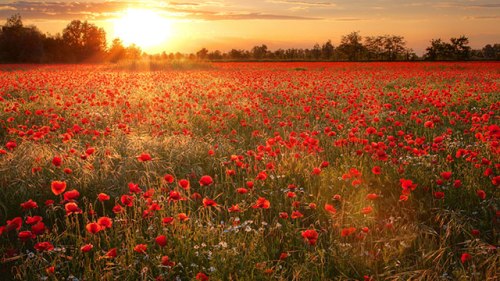
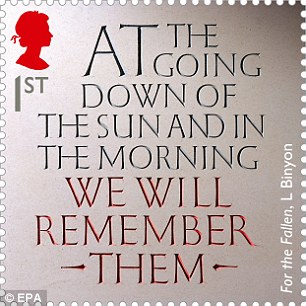
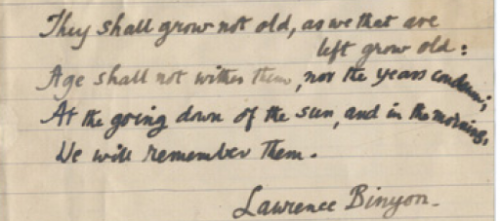



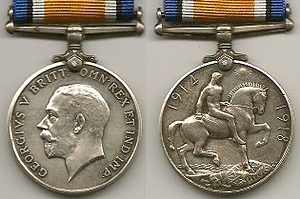
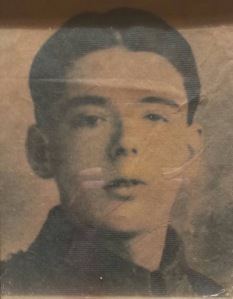

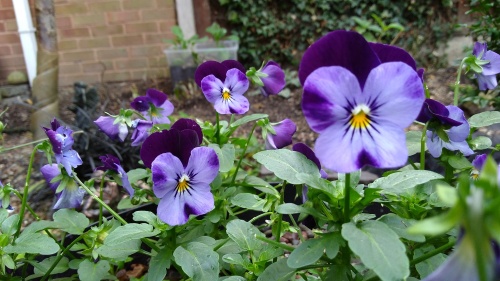


 The king gave me a shilling
The king gave me a shilling
You must be logged in to post a comment.